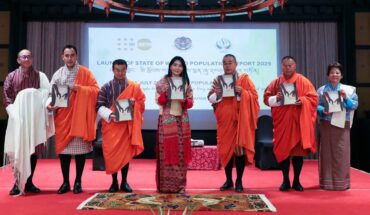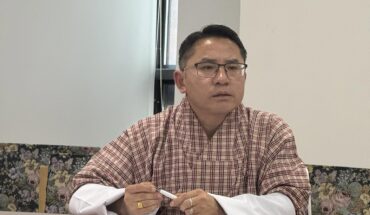
NGAWANG JAMPHEL
Thimphu
The Ministry of Health (MoH) is working on revised referral guidelines that could transform kidney transplantation procedures in Bhutan by incorporating ABO-incompatible kidney transplants (ABOi-KT). This policy aims to alleviate the challenges faced by patients dependent on dialysis and unable to find compatible donors.
Currently, over 411 Bhutanese citizens are undergoing dialysis due to the lack of compatible kidney donors, according to the Bhutan Kidney Foundation (BKF). These patients endure significant physical, emotional, and financial stress, which also strains government resources.
ABO-incompatible transplants, successfully performed in India since 2018, offer a viable solution. However, Bhutan’s existing referral policy does not permit such procedures, leaving patients without access to this advanced medical option.
ABO-incompatible kidney transplants allow patients to receive kidneys from donors with mismatched blood types by using advanced treatments like plasmapheresis and intravenous immunoglobulin (IVIG) injections.
These treatments reduce the level of antibodies in the recipient’s blood, increasing the chances of a successful transplant. While the procedure is estimated to cost an additional Nu. 200,000-250,000 per patient, it has proven effective in increasing donor availability and reducing waiting times.
At the 11th Meet-the-Press session, Health Minister Tandin Wangchuk emphasized the importance of introducing ABOi-KT in Bhutan.
“The provision aims to alleviate the suffering of patients and their families while reducing the long-term financial and emotional burdens they currently face. Ensuring accessibility to this advanced medical procedure aligns with the government’s commitment to providing equitable healthcare services,” said the Minister.
The draft revised referral guidelines, which include provisions for ABOi-KT, will be submitted to the High-Level Committee of the Health Sector (HLC) for recommendation before being presented to the government for approval.
Patients undergoing dialysis also face inadequate financial support. The government’s current Daily Subsistence Allowance (DSA) for patients referred to India is Nu. 150 per day for the first month and Nu. 125 per day thereafter—rates that have remained unchanged for over two decades. These amounts are insufficient to meet the rising costs of food, accommodation, and transportation.
A case study conducted by the BKF among 100 referred patients highlighted the urgent need to increase the DSA to Nu. 400-500 per day to reflect the current cost of living. Without this adjustment, many patients are forced to borrow money or cut essential expenses to manage their treatment.
The draft guidelines propose revising the DSA to Nu. 400 per person per day, aligning with the minimum national wage rate and inflation adjustments. This increase aims to alleviate the financial burden on patients and their escorts, enabling them to focus on recovery without undue stress.
“Although this adjustment will triple the DSA expenses, it is expected to provide patients and their escorts with sufficient financial support to meet their daily expenses during treatment,” said Minister Tandin Wangchuk.
The lack of access to ABO-incompatible transplants and inadequate financial support has had profound consequences for patients. Tashi Dorji, a kidney patient undergoing dialysis in Kolkata, shared his struggles. “The current DSA barely covers food and accommodation, let alone transportation or medication. Many of us borrow money to make ends meet, adding to our stress during an already difficult time,” he said.
Globally, ABO-incompatible transplants have revolutionized organ donation, increasing transplant rates and improving patient outcomes. Bhutan now has the opportunity to adopt this advancement, ensuring equitable healthcare access for its citizens.
If approved, the revised referral guidelines will mark a significant milestone in Bhutan’s healthcare system. By including ABOi-KT and revising the DSA rates, the policy seeks to address the financial and medical challenges faced by patients and their families.
As for the hundreds of Bhutanese dependent on dialysis, these proposed changes could provide much-needed relief reaffirming Bhutan’s dedication to equitable and compassionate healthcare.





